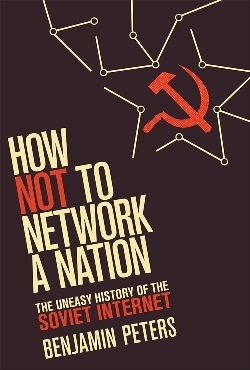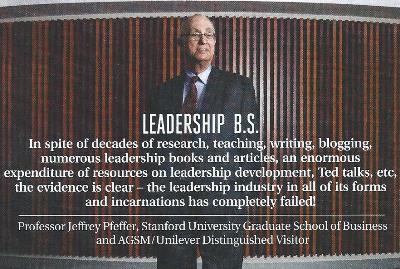Jeremie Averous's Blog, page 83
October 22, 2016
How Today is The Best Time to Be Alive
Today is the best time to be around for a human – that’s a least what the statistics show. A large number of statistics are for example given in this Spectator article ‘Why can’t we see that we’re living in a golden age?‘ : wealth, life expectancy, violence rate, all indicators trend favroably (on average).
 Life expectancy evolution in the world, showing improvements for all countries (click for link to larger version)
Life expectancy evolution in the world, showing improvements for all countries (click for link to larger version)And indeed in spite of the increase of the world population and all the problems that plague humanity, it looks like it has never been a best time to be alive for a human, male or female.
Of course, the world changes fast and it is difficult to know what to do to thrive, because the practices from yesterday are not the one that will make successful tomorrow. Of course, inequality tends to increase as a result of connectivity and increased complexity. Still humanity has never been as protected and wealthy.
Still we are also very fearful and believe doomsayers. That might be because “We’re hardwired not to believe this. We’ve evolved to be suspicious and fretful: fear and worry are tools for survival. The hunters and gatherers who survived sudden storms and predators were the ones who had a tendency to scan the horizon for new threats, rather than sit back and enjoy the view. They passed their stress genes on to us. That is why we find stories about things going wrong far more interesting than stories about things going right. It’s why bad news sells, and newspapers are full of it.”
Look at evidence and enjoy the ride. And we have never had so much spare time and communication capability to enjoy it anyway!

October 20, 2016
Why Leaders Must Put On a Show
“Leaders must be able to put on a show, to display energy and pay attention to others, regardless of how they may feel at the time” writes Jeffrey Pfeffer in ‘Leadership BS: Fixing Workplaces and Careers One Truth at a Time‘
 He continues: “In fact, being authentic is pretty much the opposite of what leaders must do. Leaders do not need to be true to themselves. Rather, leaders need to be true to what the situation and what those around them want and need from them. And often what others want and need is the reassurance that things will work out and the confidence that they are on the right track.”
He continues: “In fact, being authentic is pretty much the opposite of what leaders must do. Leaders do not need to be true to themselves. Rather, leaders need to be true to what the situation and what those around them want and need from them. And often what others want and need is the reassurance that things will work out and the confidence that they are on the right track.”
It is true that I have found that the advice of being authentic as a leader is not always the best way to perform the role. On the other hand, sometimes being authentic allows a real connection with the people or the team, and that is also worthwhile. The issue here is to know when to be authentic and when to put on a show. And most of the time it is about putting on a show for the team.

October 18, 2016
How To Overcome the ‘Sunk Cost Syndrome’
I am always amazed at how difficult it can be for individuals and organizations to avoid the ‘sunk cost’ fallacy, with dramatic consequences.
 Not that I would be immune to the phenomenon – I always tend to store too much stuff thinking that I might use it sometime.
Not that I would be immune to the phenomenon – I always tend to store too much stuff thinking that I might use it sometime.
Still in my consulting assignments, with an external eye, it is with despair that I observe people persist on doomed projects just because of the effort and expense that has been involved in the past. The technology can be inadequate or obsolete, the object broken beyond obvious repair, still they persist.
Overcoming the ‘sunk cost syndrome’ clearly requires to avoid any emotional attachment with the object or the project. It thus generally requires an external independent view that was not involved. It can be someone from somewhere else in the organization, or an external party.
At any rate, every investment on an existing tool and any cleanup of storage needs to be done with the sunk cost syndrome in mind. It is often cheaper and more convenient to buy new than try to fix an old stuff. Always get an external view of someone that was not involved to get out of the ‘sunk cost syndrome’.

October 15, 2016
How Offices Will Increasingly Become Collaboration Spaces Only
As a small consulting company we don’t have an ‘Office’. We have meeting points (cafes, sometimes a rented meeting room). That might well be the trend in the future, with offices becoming exclusive collaboration spaces, bringing together a team temporarily for a joint effort.
 Why should we have an office and pay for the space? We are mainly working at clients’ offices and often staying at hotels. We can work from anywhere with 4G connectivity. A home office is sufficient for remote work when needed. This has drawbacks of course, such as loneliness sometimes. I have to recognize that this model is still non-traditional and we face sometimes misunderstanding by authorities and clients. But I strongly believe it is the future of work.
Why should we have an office and pay for the space? We are mainly working at clients’ offices and often staying at hotels. We can work from anywhere with 4G connectivity. A home office is sufficient for remote work when needed. This has drawbacks of course, such as loneliness sometimes. I have to recognize that this model is still non-traditional and we face sometimes misunderstanding by authorities and clients. But I strongly believe it is the future of work.
In the future the traditional office, if linked to controlling the time people spend at work, and as a private territorial space might well disappear. Even at the executive level (people that generally are travelling a lot) the concept of private office tends to be replaced by hot desks.
At the same time, the importance of offices as collaboration spaces will increase, because teamwork is always essential at creating value. But we don’t necessarily need to be collaborating all the time; we also need quiet time to deliver. Office space needs to be shaped for collaboration, but less so for private space, which can be conveniently found in other places closer to home, with significant savings in time, convenience and the environment.
Do you agree with this trend and do you see it evolving around you?

October 13, 2016
How Cities May Remain Stable Social Structures Through the Collaborative Age
A post on Quartz raises the issue: ‘Megacities, not nations, are the world’s dominant, enduring social structures‘. It is true that cities in general have shown substantial reisilience to history and changes in political regimes and economic activity.
 Will that remain the same through the Fourth Revolution into the Collaborative Age? There is a lot of speech on the possibilities of working remotely from the countryside. Mobility increases constantly. We don’t need so much to meet face to face to exchange and share ideas.
Will that remain the same through the Fourth Revolution into the Collaborative Age? There is a lot of speech on the possibilities of working remotely from the countryside. Mobility increases constantly. We don’t need so much to meet face to face to exchange and share ideas.
At the same time, cities remain unique melting pots of ideas, meeting points for connection and have quite a unique scale factor for enabling face-to-face meetings and teamwork with minimum time loss and cost. They are also linked to long distance transportation hubs which are not going to disappear soon. I believe that teamwork will remain a decisive factor for value production in the future, therefore cities will probably remain a fixture. However as they will drain ever increasing territories they may become fewer and further between.

October 11, 2016
How Being Creative Means Being Boring in Other Fields of Life
Flaubert said it best: “Be regular and orderly in your life, so that you may be violent and original in your work.” [h/t Austin Kleon]
 Being creative and original in certain fields requires brain power, attention that can’t be used also for other activities. Therefore, the rest of the life of creative people is often boring. For example, they don’t change their type of clothes because they don’t want to think about it in the morning, and they often adhere to a very strict daily routine – often waking up early in the morning so as to be able to work without too much disturbance.
Being creative and original in certain fields requires brain power, attention that can’t be used also for other activities. Therefore, the rest of the life of creative people is often boring. For example, they don’t change their type of clothes because they don’t want to think about it in the morning, and they often adhere to a very strict daily routine – often waking up early in the morning so as to be able to work without too much disturbance.
Hence, the behavior of people you meet is not necessarily correlated with creativity. And in fact the most hectic, stressed-out, busy people are probably not the most creative.
What part of your life do you keep boring so as to have space to be creative?
(original inspiration from Gapingvoid)

October 8, 2016
How Our Relationships are Mirrors We Can Use for Learning
“Relationships are mirrors to use for self-learning, enquiry, and investigation” – writes Cate Stillman in ‘Body Thrive‘.
 She continues “Through that very learning, radical transformation of one’s life can take place. If our relationships are unclear, confusion and conflict will affect our well-being.”
She continues “Through that very learning, radical transformation of one’s life can take place. If our relationships are unclear, confusion and conflict will affect our well-being.”
I like the idea that our relationships are like mirrors that we can use to get feedback on who or what we really are. And the thing is that we don’t use relationships in this capacity enough. We underestimate what they can bring to us in particular when they are deep and authentic.
Think about your most important relationships today. How could you use better their mirror capability to improve yourself?

October 6, 2016
How the Soviet Union failed at developing Internet
It appears that the Soviet Union considered a full computer network to be deployed and even decided to go for it in 1970, a year later than the Arpanet. That’s what a new book ‘How not to network a nation‘ states (here is a link to excerpts).
 “The Politburo convened that day to hear Glushkov’s proposal and decide whether to build a massive nationwide computer network for citizen use — or what Glushkov called the All-State Automated System (OGAS, obshche-gosudarstvennyi avtomatizirovannaya system), the most ambitious computer network project of its kind in the world at the time. OGAS was to connect tens of thousands of computer centers and to manage and optimize in real time the communications between hundreds of thousands of workers, factory managers, and regional and national administrators. The purpose of the OGAS Project was simple to state and grandiose to imagine: Glushkov sought to network and automatically manage the nation’s struggling command economy“.
“The Politburo convened that day to hear Glushkov’s proposal and decide whether to build a massive nationwide computer network for citizen use — or what Glushkov called the All-State Automated System (OGAS, obshche-gosudarstvennyi avtomatizirovannaya system), the most ambitious computer network project of its kind in the world at the time. OGAS was to connect tens of thousands of computer centers and to manage and optimize in real time the communications between hundreds of thousands of workers, factory managers, and regional and national administrators. The purpose of the OGAS Project was simple to state and grandiose to imagine: Glushkov sought to network and automatically manage the nation’s struggling command economy“.
And that’s was the end of it: conceived as a way for a central power to plan and decide on the fate of the country, it missed the factor that ultimately made the success of internet: allowing two-way communication and the flourishing of local initiative.
The failure at developing internet is not due to technology. It is due to the centralized, autocratic political system. Internet is the product of democracy, local initiative and free speech.

October 4, 2016
How Leadership Development Programs are Designed to Derail Those Who Believe in Them
The thought might be a bit extreme but is worthwhile considering: what if the leadership development programs were actually designed to filter out of the career progression those who really believe in them?
 Following up on our review of Jeffrey Pfeffer‘s book ‘Leadership BS: Fixing Workplaces and Careers One Truth at a Time‘ (see our post ‘Why the Leadership Industry Is Failing‘, the author notes that in a typical career, “The critical time comes around twenty years [in the career], when, if successful, people have reached very senior hierarchical levels where everyone around them is smart and accomplished.”
Following up on our review of Jeffrey Pfeffer‘s book ‘Leadership BS: Fixing Workplaces and Careers One Truth at a Time‘ (see our post ‘Why the Leadership Industry Is Failing‘, the author notes that in a typical career, “The critical time comes around twenty years [in the career], when, if successful, people have reached very senior hierarchical levels where everyone around them is smart and accomplished.”
He continues “At that point, the differentiating factor is the ability to navigate increasingly politically charged environments that are peopled by those who mostly do not fulfill the leadership industry’s prescriptions“. This inconsistency between the actual behavior of successful leaders and what is being taught in the programs is actually quite striking also from my own experience.
Hence it is almost a natural deduction that if we were to apply what is being taught in leadership development courses, we condemn ourselves to career failure. Of course reality is not as black and many leadership course instructors and developers have good intent. However the thought is worth considering. A certain degree of unconventionality is required in all cases.
How ‘unconventional’ are you in the way you lead?

October 1, 2016
Why the Leadership Industry Is Failing
In the highly recommended book ‘Leadership BS: Fixing Workplaces and Careers One Truth at a Time‘, Jeffrey Pfeffer takes a very strong position on the failing of what he calls the “leadership industry” to produce the strong leaders organizations and society need.
 “My conclusion that follows from these two sets of facts: The leadership industry has failed. Good intentions notwithstanding, there is precious little evidence that any of these recommendations have had a positive impact.”
“My conclusion that follows from these two sets of facts: The leadership industry has failed. Good intentions notwithstanding, there is precious little evidence that any of these recommendations have had a positive impact.”
He started from an “observation: on the one hand, there is an ever-growing, enormous leadership industry consisting of an almost limitless number of books, articles, speeches, workshops, blogs, conferences, training sessions, and corporate leadership-development efforts, activities that have existed for decades. […]
The recommendations include, but are not limited to, that leaders inspire trust, be authentic, tell the truth, serve others (particularly those who work for and with them), be modest and self-effacing, exhibit empathic understanding and emotional intelligence, and other similar seemingly sensible nostrums.
And on the other hand, there sits ample, even overwhelming evidence of workplaces filled with disengaged, dissatisfied employees who do not trust their leaders and whose oft-expressed number one desire is to leave their current employer. What’s the upshot? Not only is the world filled with dysfunctional workplaces, but leaders themselves are not doing so well, as they confront shorter job tenures and an ever-higher probability of suffering career derailments and getting fired.”
I am not too far from agreeing with this view. I am generally suspicious about mainstream ‘unanimity’ on concepts and approaches and I must say that leadership is an area of much concern. In future posts we will explore more this interesting observation and conclusion.




